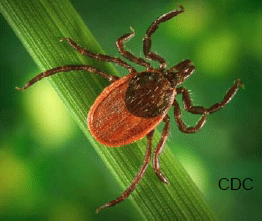|
When you have a second to sit quietly, give this a listen. It's high pitched, so at first it may not seem relaxing, but please pay attention to how you feel when you're listening to it. If you find it helps, you can come back and listen to it again anytime!
0 Comments
Following please find some information about the coronavirus I though you might like to know (all based on our current understanding of the virus):
1) I recommend putting your focus on prevention, including:
2) Another aspect of prevention is to take good care of yourself right now, including:
3) Please understand that, based on what we know now, coronavirus is less dangerous than Influenza A (of which H1N1 is a sub-type), which is in our community right now. Additionally, reputable sources calculate the number of infected people actually exceeded 100,000 as of January 26th (which would drive the mortality rate down quite a lot). 4) Masks are potentially helpful in terms of limiting the spread of the virus, but not particularly effective at protecting you, if you just head to the store and buy one off the shelf for yourself. 5) The coronavirus can show up as just a sudden onset cough in an elderly person, without any fever. Additionally, many people have contracted this virus with only mild symptoms. 6) If you get sick, and you're managing okay, then stay home! If you need medical help, and have any reason to believe you have been exposed to the coronavirus, always call ahead and notify your healthcare practitioner of your circumstances. I hope all this information puts your mind at ease, and gives you some direction in regards to how to take care of yourself! When you visit a complimentary healthcare practitioner, make sure you know what you're getting! Let's get one thing straight right away. This post is NOT about people visiting reflexologists, health coaches, shamans, etc. Many of these people enrich our lives so very much! This post IS about people who advertise healthcare in such a way as to make you feel like you're going to receive medical advice, visit a clinic, get a prescription, etc. Why Am I Worried? The danger comes when people without adequate training start giving medical advice or recommending supplements. This can be very dangerous! For example, it is not uncommon for people who are taking antidepressants to do some reading and learn about the potential benefits of the plant St. John's Wort. St. John's Wort is amazing! In fact, it is has been proven to have similar efficacy to antidepressants in mild and moderate depression, without a lot of the side effects. However, it can cause something called 'Serotonin Sickness' when combined with antidepressants, and that can be fatal. One of the most challenging aspects of my work is that I'm not only treating the individual, but I'm also continually making sure that I'm not prescribing anything that interferes with their prescription drugs and medical conditions. I have a lot of training that I use to navigate this challenge. What To Look Out For When Seeking Help With Your Health: Common titles I see thrown around in Ontario are 'Naturotherapist' or 'Doctor of Natural Medicine.' Both of these things are just businesses that give people certificates, without any additional requirements. For example, the 'Academy of Naturopaths and Naturotherapists of Canada' simply asks you to send money and 'attestations, diplomas, credentials or, certificates' to them and, voila, you're 'certified.' [http://www.acnn.ca/en/procedure-to-be-followed/]. Regulated Professions: Here are the professions that Ontario regulates. If you click on any of those professions, you'll see when they became regulated, and the College that does so. (Just a little bit of background info - Ontario asks these professions to 'self-regulate,' which means that there are a lot of rules, regulations, and oversight, but the province doesn't pay for the regulation itself.) As a rule, you should be able to trust these professionals to meet their professional standards, which are high.
Another worrisome thing I'm seeing is people being given supplements by representatives from online companies, particularly multi-level marketing companies. For example, the worst product I've run across is/was called 'Zija XM,' which was filled with a dangerous combination of stimulants, including a form of ephedra! I had a number of patients experience troubling heart rate and rhythm problems on this supplement. One of the issues with these companies is they make their representatives over-confident that they are equipped to offer medical advice. They're not. In Summary: There are still grey areas. For example, there is not a regulatory college for Herbalists (the use of medicinal plants), which is a time-tested and valuable discipline. In fact, it is one of the modalities I use in my practice, and I love it! Generally, if you're looking for a good herbalist, I would recommend seeking out someone who has years of experience in herbalism or, if you run across a younger person, someone who is registered with the Ontario Herbalists Association. It's not full regulation, but the association is in place to help ensure you see someone competent! When in doubt, ask a lot of questions! Someone you're paying to help you should be able to clearly outline their training and experience in a way that makes you feel comfortable. Don't get distracted by fancy titles or certificates, they may be just that - a distraction. Image courtesy of Sira Aamwong at FreeDigitalPhotos.net
Do you ever wonder if it's the best idea to regularly slather sunscreen (that contains chemicals like Parsol, Escalol, and Mexoryl) all over your body? Here's your guide to healthy sun exposure this summer! First, a few interesting sun facts. Did you know that:
In general, it's important to strike a balance between: 1) healthy sun exposure, 2) covering up, and 3) applying sunscreen. You need some unprotected sun exposure in order for your body to produce and store vitamin D. The lighter your skin is, the faster you produce vitamin D. Some research suggests that you may need as little as ten minutes twice a week of unprotected sun exposure, but this is probably on the low side. There are rising concerns about negative health effects of chemical sunscreens. If you can cover up, why not do that instead? If you can't cover up, or don't want to, then consider choosing a sunscreen that contains a 'physical block' of the sun. This means the sunscreen actually gets in the way of the rays of the sun, generally with the ingredients 'zinc oxide' or 'titanium dioxide.' These ingredients are found in natural sunscreens and children's sunscreens. The physical block sunscreens can leave a slight white residue on the skin. You can check out the details of most sunscreens through the Environmental Working Group database (www.ewg.org/skindeep). In terms of what is readily available in North Bay, I recommend the the Badger line of mineral sunscreens (which has a good safety rating and is available at health food stores). I recommend avoiding spray on sunscreens, primarily because it is difficult to ensure that enough has been applied evenly. If you're traveling and/or shopping online, here's a list of some great products. Manufacturers have recently started 'micronizing' the titanium dioxide and zinc oxide (making them smaller) so that they appear transparent to the naked eye, but still effectively block out the sun. If a particle is micronized enough it becomes a 'nanoparticle.' There is some concern that nanoparticles may pass through the skin into the body, with possible negative long-term health consequences, but there hasn't been enough research on this topic to know for sure. Badger does not micronize their mineral ingredients. If you're using your sunscreen on babies, please note that zinc oxide has been approved by the FDA for infants six months and younger, whereas titanium dioxide has not. Also, there is some evidence that zinc oxide does a better job of scattering the rays of the sun away from your skin. However, just to confuse the issue, the Environmental Working Group gives titanium dioxide a better safety rating than zinc oxide. There is some concern that titanium dioxide is carcinogenic when inhaled. Armed with this information, you can get out there and safely enjoy the sun this summer! Image courtesy of stockimages at FreeDigitalPhotos.net I'm looking forward to presenting on this interesting topic! There will be no fee for this talk, and it will be held in one of the main rooms at Ohana Yoga and Wellness Centre in Callander (map below). Click here if you'd like to learn more about the Ohana Centre, it's a great place!
Check out my latest article in North Bay's Community Voices (released today)! Many of my readers and patients take a proton pump inhibitor (PPI). You might recognize your PPI by one the following names - pantoprazole (e.g., Tecta), omeprazole (Losec), esomeprazole (Nexium), or lansoprazole (Prevacid). There is also a PPI that Canadians can buy over-the-counter called Olex.
Proton Pump Inhibitors work by irreversibly stopping the cells in your stomach that pump out acid (proton pumps). PPIs are frequently recommended for gastrointestinal reflux and ulcers, but are also combined with drugs that are hard on the stomach lining (such as the drug Vimovo, which is a combination of Naproxen and a PPI). It is recommended that PPI use be limited to a few weeks, although I almost always see patients that have been taking them for years. It takes several days for a PPI to reach its full effect, and a few more days for it to fully leave your system. If you have stomach acid causing damage to your esophagus or worsening an ulcer in your stomach/duodenum, then a PPI can be an excellent intervention to halt that damage before it becomes serious. However, if you have occasional heartburn, you may be better served by faster-acting over-the-counter heartburn relief. Did you know that your Proton Pump Inhibitor can have some serous side effects? These include:
Proton Pump Inhibitors have also been found to decrease the levels of vitamin B12 in your body. The lowered levels of acid in your stomach reduces your ability to fight bacteria entering your digestive tract and your ability to absorb vital nutrients, we produce that acid for a reason! The Journal of General Internal Medicine just released a recommendation that the use of PPIs in any hospitalized patients should be discouraged because it increased the risks of patients dying (primarily from contracting infections like pneumonia). It is important to know that when you stop a PPI you can suffer from something called 'Rebound Acid Hypersecretion.' This means that for a short period of time your stomach can over-compensate by producing too much acid. People who stop their PPI and experience this temporary side effect may get the wrong impression about how much they need their PPI. If you aren't able to control your heartburn by avoiding known triggers, an alternative healthcare practitioner, such as a naturopathic doctor, can work with you to treat the cause of your heartburn. Most cases of heartburn are not caused by high levels of acid, but instead by the acid being in the wrong place in your digestive tract, which can be treated. Remember to consult with your medical doctor before stopping any prescription drugs. I am pleased to announce that I have been elected to the Council of the College of Naturopaths of Ontario! This is the first elected council since naturopathic doctors were brought under the Regulated Health Professions Act this summer (click here for more information on this topic). Ontario is divided into eight districts, and I will be representing the entire northern portion of the province, from Kenora to Gravenhurst.
The College of Naturopaths of Ontario is responsible for developing the regulations, policies, by-laws and necessary business operations to govern the profession. The College now:
Until I head down to Toronto for my first council meeting, my official title is 'Councillor Elect.' I look forward to playing my part in ensuring that naturopathic doctors in Ontario continue to be the safe, skilled, and caring practitioners you have come to know and trust. If you would like to know more about the College please click here.  On July 1, 2015, Naturopathic Doctors across Ontario officially moved to be regulated under the Regulated Health Professions Act (RHPA). The RHPA already governs other health care professionals such as medical doctors, nurses, dentists, chiropractors, and midwives. Up until this point, the Naturopathic profession has been regulated under the Drugless Practitioners Act (DPA). The new regulatory body for Naturopathic Doctors (NDs) in Ontario is The College of Naturopaths of Ontario (CONO). Testing Naturopathic Doctors have provided a variety of lab tests for their patients with the help of Medical Doctors (MDs) for many years. Under the RHPA, NDs are now able to independently order 194 lab tests on blood, breath, hair, tissue/discharge, saliva, stool, and urine. Here is a list of tests your ND can request for you. However, NDs will no longer be able to collect blood samples in-office, with the exception of certain point-of-care tests like blood glucose and blood typing. NDs will also no longer be able to access blood tests through companies outside of Ontario. Ontario laboratories are currently working hard to fill the gap so that NDs will be able to continue to order the tests that provide you with the best care. One thing that has not changed is that no blood test is covered by OHIP when requisitioned through your ND. Prescribing With this change in legislation, Naturopathic Doctors have now gained some prescribing rights. Each Naturopathic Doctor in Ontario is required to complete an additional course and examination if they wish to utilize those prescribing rights. Dr. Raymond, ND, is proud to announce that she has studied hard and passed the exam! The prescribing rights include supplements (for example, vitamin D3 in quantities greater than 1000 IU) and some medications (for example, thyroid hormones). A huge thank you to all the patients who have taken part in lobbying the Ontario government to help Naturopathic Doctors continue to do their jobs, along with the Ontario Association of Naturopathic Doctors for all their hard work. [Image courtesy of Naypong at FreeDigitalPhotos.net] Isn't it hard to figure out how bad fluoride is for you? We hear horror stories about how sick it can make us, but we also hear that our teeth need it! I recently reviewed the current evidence about fluoride on behalf of a young patient who is struggling with his dental health. Here is what I found, and I have to say, I was surprised! Why Fluoride is Added to Drinking Water Here is a summary, from the Centers for Disease Control and Prevention, of how a lot of drinking water came to be treated with fluoride, and it says "...laboratory and epidemiologic research suggests that fluoride prevents dental caries [cavities] predominately after eruption of the tooth into the mouth..." Evidence That Fluoridated Water Helps With Dental Health Evidence does show that the fluoridation of water is associated with better dental health, but the evidence also shows that dental health has improved in areas that don't have fluoridated water. This 2001 study from British Columbia found "The prevalence of caries [cavities] (assessed in 5,927 children, grades 2, 3, 8, 9) decreased over time in the fluoridation-ended community while remaining unchanged in the fluoridated community." Translation - dental health improved when water stopped being fluoridated! Too Much Fluoride! One of the concerns is something called dental fluorosis, which is the deposition of excess fluoride into the enamel of the tooth, causing visible white or brown spots or streaks. There is also concern regarding fluorosis in general (meaning too much fluoride in the body). Dental fluorosis is often thought to indicate general fluorosis. Is There Proof That Fluoride is Bad For Me? Part of the problem with fluoride is that we know that it can be bad for you, but we're not always sure of how and at what level of exposure. Take this review from The Lancet (a very well-respected journal) which says: "Neurodevelopmental disabilities, including autism, attention-deficit hyperactivity disorder, dyslexia, and other cognitive impairments, affect millions of children worldwide, and some diagnoses seem to be increasing in frequency. Industrial chemicals that injure the developing brain are among the known causes for this rise in prevalence. In 2006, we did a systematic review and identified five industrial chemicals as developmental neurotoxicants: lead, methylmercury, polychlorinated biphenyls, arsenic, and toluene. Since 2006... studies have documented six additional developmental neurotoxicants—manganese, fluoride, chlorpyrifos, dichlorodiphenyltrichloroethane, tetrachloroethylene, and the polybrominated diphenyl ethers...To control the pandemic of developmental neurotoxicity, we propose a global prevention strategy. Untested chemicals should not be presumed to be safe to brain development, and chemicals in existing use and all new chemicals must therefore be tested for developmental neurotoxicity." Scientists do go looking for a connection between elevated fluoride levels and negative health effects. We know that very high levels of fluoride damage our neurological system. This study found a correlation between higher fluoride levels and lower IQ scores, but it mostly reviewed studies coming out of rural areas in China with high levels of fluoride exposure. Overall, there isn't a lot of good evidence out there yet that fluoride, in the concentrations that Canadians are exposed to, is detrimental to our health. Bear in mind, it is considered unethical to expose children to high levels of fluoride, which makes it pretty hard to study! Much of the research regarding fluorosis is coming out of India, where water has more fluoride added than Canada. Studies like this one found that fluoridated water does increase blood and urine fluoride levels, and negatively affects thyroid function. In 2006 the National Research Council published the book "Fluoride in Drinking Water" which raised a lot of concerns about the known health risks of high levels of fluoride and called for A LOT more research about the health risks of long-term exposure to lower levels of fluoride (excerpts here). The Movement Against Fluoride Use Here is a link to a post from Mercola about fluoride, coming out strongly against fluoride use. I find the Mercola website to be alarmist, but I also really respect the fact that it includes references. If you find something they claim unbelievable or shocking, click on the reference and learn the details. Fluoride Use Recommendations The Centers for Disease Control and Prevention recommends that children younger than 2 years of age not use fluoridated toothpaste, and that children younger than 8 years of age not be exposed to drinking water that contains more than 2 mg/L of fluoride. [The Indian children in the study previously mentioned were exposed to between 0.98 to 5.5 mg/L of fluoride in their drinking water.] Health Canada recommended in 2007 that drinking water contain no more than 1.5 mg/L of fluoride. There is a group of world-renowned scientists, called The Cochrane Collaboration, that is well respected for taking a hard look at the evidence and releasing recommendations that are just based on the facts. Here is what they have had to say about fluoride use in children: "A statistically significant reduction in fluorosis was found if brushing of a child's teeth with fluoride toothpaste commenced after the age of 12 months." "The evidence for its use between the age of 12 and 24 months is equivocal. If the risk of fluorosis is of concern, the fluoride level of toothpaste for young children (under 6 years of age) is recommended to be lower than 1000 parts per million (ppm)." (review here) "Topical fluorides (mouthrinses, gels, or varnishes) used in addition to fluoride toothpaste achieve a modest reduction in caries compared to toothpaste used alone." (review here) " There is a need for complete reporting of side effects and acceptability data in fluoride mouthrinse trials." (review here) "This review confirms the benefits of using fluoride toothpaste in preventing caries [cavities] in children and adolescents when compared to placebo, but only significantly for fluoride concentrations of 1000 ppm and above... The decision of what fluoride levels to use for children under 6 years should be balanced with the risk of fluorosis." (review here) Note - 1000 ppm fluoride concentration seems to be the level at which children will experience the most benefit AND the most risk. Is My Water Fluoridated? Wondering if your water is fluoridated? Here is a nice summary put out by Canadian Dental Association regarding the state of fluoridation in Canada. It says that, as of 2007, 45.1% of the Canadian population has fluoridated water (Ontario's percentage is higher). Some communities have decided to stop fluoridating their water based on health concerns, including Kirkland Lake. The Doctor's Opinion After spending hours and hours reviewing all this evidence, I have come to the conclusion that fluoride exposure from anything other than natural food and water sources (especially above 1000 ppm) is only worth the risk:
Dental health, as an issue, reminds me of osteoporosis. Our society has become fixated upon the idea that osteoporosis is a condition caused entirely by calcium deficiency, even though other cultures with less dietary calcium than us don't suffer from osteoporosis, and we know it's related to numerous other nutrient deficiencies (vitamin K1, vitamin K2, trace minerals, vitamin D3, magnesium, etc.) and other health imbalances (general acidity, lack of exercise, poor digestion, etc.). Similarly, fluoride is only a small part of the picture with regards to dental health. A naturopathic doctor can help you look at other factors that affect your dental health, including diet, digestion of nutrients necessary for dental health, bacterial levels, and many other factors. [Image courtesy of Ambro at FreeDigitalPhotos.net] I recently attended a lecture, hosted by the Nipissing Naturalists Club on the topic of the Black Legged Tick, given by Dr. Katie Clow from the University of Guelph. Dr. Clow has been in the Nipissing area studying our tick population, which is pretty cool! What do you need to know? Well, first of all, the basics. Lyme Disease is caused by a bacterial spirochete carried by ticks. The most famous bacterial spirochete causes Syphilis. Ticks carrying Lyme Disease have been gradually moving into Ontario, current hot spots include the shores of Lake Erie and Lake Ontario, along the St. Lawrence River, Thunder Bay, and the Kingston area. As the climate changes, ticks are expected to move further and further north, supported by warmer temperatures and sometimes carried by migratory birds. Because birds can drop ticks anywhere, you can become infected by Lyme Disease in our area, although it is currently highly unlikely. Here are some basic facts, as presented by Dr. Clow:
Click here for more information about how to protect yourself from ticks and what a Lyme disease infection might look and feel like. [Credit is also given to the Ontario Ministry of Health and Long-Term Care and the CDC for the photo used at the top of this post.]
Here is the information released to the public by the North Bay Parry Sound District Health Unit. "In 2013, 21 ticks were submitted through human exposure for identification, two specimens were not ticks and nine specimens were identified as Ix. scapularis, the species of concern for the transmission of [Lyme Disease]. The results for seven of the nine specimens were negative for B. Burgdorferi, the agent for [Lyme Disease]. At the time this report was written, the results for two specimens were still pending from the Public Health Agency of Canada lab. In 2013, 311 cases of [Lyme Disease] were reported in Ontario. This is a substantial increase from 2012, when 101 cases were reported (Public Health Ontario, 2013). There was one positive human cases of [Lyme Disease] in the [North Bay Parry Sound District Health Unit] area in 2013." (Elsewhere in the report, they specify the positive case in 2013 was travel-related) We can expect Lyme Disease to eventually become more common in our area (see the image below). This image is a projection of Black Legged Tick expansion based upon climate change projections using the 'Canadian Global Coupled Model' taken from the 2005 publication Effect of Climate Change on Lyme Disease Risk in North America. What Do I Need to Know About Lyme Disease Testing and Treatment? The easiest way for a medical doctor, naturopathic doctor, or nurse-practitioner to diagnose Lyme disease is clinically, based on a combination of the following factors: 1) exposure to the outdoors in an area where Lyme Disease is endemic, and 2) the characteristic bull's-eye rash, and/or 3) symptoms such as fever, diffuse rash, and muscle aches. If you aren't being diagnosed based on this criteria, you suspect you have Lyme disease, and the tests your medical doctor or nurse practitioner have run are not coming back positive, you can speak to a naturopathic doctor about more extensive testing. The most important thing is to get tested as soon as possible. Your ideal testing window is in the first six weeks after you are infected. The second thing you need to know is that antibiotics are the ideal treatment immediately after infection. The current research suggests the ideal duration of antibiotics after a recent infection is 10 days, though this is a bit of a controversial topic. You should definitely ask for more than one day of antibiotics, if this is the prescription you receive. Chronic infections (see below) require different protocols, and benefit tremendously from the inclusion of naturopathic care. The Stages of Lyme Disease It is a common theory that Lyme disease can become chronic if not caught early and/or treated successfully. Some patients report that their Lyme disease was not successfully eradicated with the recommend course of antibiotics. Many people do not develop the characteristic bull's eye rash (if they develop any rash at all), meaning the disease would not necessarily be detected in the acute stage. Chronic Lyme disease is believed to evolve into problems with arthritis and the neurological system, in particular. You can learn more here. Resources:
http://myhealthunit.ca/en/partnerandhealthproviderresources/resources/2013_NBPSDHU_Vector_Borne_Diseases_Report.pdf http://canlyme.com/ http://www.igenex.com/Website/# http://www.health.gov.on.ca/en/public/publications/disease/lyme.aspx Clinical Key - First Consult - Lyme Disease - Revised: 18 Jul 2013 http://www.ncbi.nlm.nih.gov/pubmed/20070237 |
AuthorDr. Dielle Raymond, ND Archives
March 2020
Categories |
This website is intended for educational purposes only. There are no contents on this website that are intended to provide medical advice, diagnosis, or treatment. Copyright ©2023 Dr. Dielle Raymond, ND. All Rights Reserved.









 RSS Feed
RSS Feed